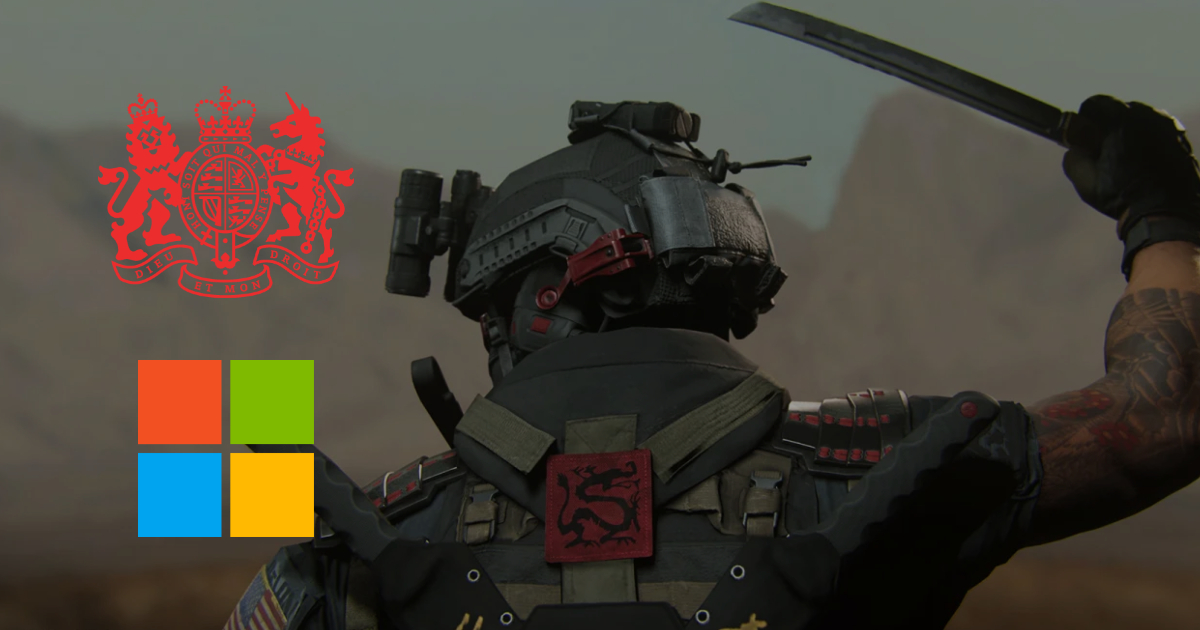Microsoft is now preparing for a summer fight with the UK regulator, as the country’s Competition Appeal Tribunal has set a timeframe for an appeal hearing. The Competition and Markets Authority failed to convince the court to adjourn the case.

How did Microsoft’s appeal of the CMA’s ruling start?
On May 30, the Competition Appeal Tribunal (CAT) held a case management conference on Microsoft’s appeal of the CMA’s decision to block its acquisition of Activision Blizzard. Justice Marcus Smith listened to both parties before setting the timing for the main hearing.
In a summary filed with the CAT ahead of the conference, Microsoft noted that it is challenging the CMA’s ruling on the following grounds:
- The regulator made “fundamental errors” in assessing Microsoft’s current position in the cloud gaming market and came to the wrong conclusion by defining cloud gaming services as a separate market;
- The CMA didn’t take into proper account three 10-year agreements with rival cloud gaming providers such as Nvidia’s GeForce Now and Boosteroid;
- The finding that Activision would likely have made its games available on cloud gaming services absent the merger was called “irrational and arrived at in a procedurally unfair manner”;
- Findings that Microsoft would have an incentive to withhold access to Activision games to rival services post-acquisition were called “unlawful”;
- The regulator failed to properly assess the benefits and detriments of remedies proposed by Microsoft and “acted in breach of [Microsoft’s] common law duty of fairness and the CMA’s own remedies guidance.”
When justifying its ruling, the CMA cited its willingness to protect competition in the “emerging and exciting” cloud gaming market. It believes that the Activision Blizzard acquisition would give Microsoft a clear advantage in this field and harm both rival services and customers.
However, the regulator’s perception of cloud gaming as a distinct market might be the key argument that Microsoft will use during the upcoming hearing. Some analytics and experts have already touched on this topic, explaining why the regulator’s market definition is wrong. For example, Joost Rietveld of the UCL School of Management identified four main types of cloud gaming services that act more as separate “promising distribution methods” within the global games market rather than a single, clearly defined market in its own right.
Microsoft’s argument here is that cloud streaming services and native gaming are substitutable. So if customers can switch between these ways of consuming products, they are both part of the broader games market, which makes the CMA’s definition flawed.
When will the UK appeal hearing take place?
- The case management conference was livestreamed on Microsoft Teams and, according to Foss Patents’ Florian Mueller, lasted almost four hours.
- As pointed out by The Verge senior editor Tom Warren, Microsoft proposed to hold a four-day hearing on July 17. But the CMA wanted a longer process that would start in the fall, arguing that it needed more time to prepear for defending its ruling.
this is Microsoft’s proposed timing for the appeal hearing pic.twitter.com/Y8o9BKPdS0
— Tom Warren (@tomwarren) May 30, 2023
- However, Justice Smith denied the CMA’s request and provisionally scheduled the appeal hearing for the ten working days beginning July 24. He recommended a six-day process, as opposed to the four days requested by Microsoft.
- Activision Blizzard also took part in the conference, arguing that if the CMA “found there was no foreclosure risk in consoles […], they can’t just assume the opposite in cloud gaming” (via Mueller).
- There will be the second case management conference on June 12, where the CAT will hear factual and expert evidence. Activision Blizzard is also expected to intervene.
Anyone asking to intervene (besides ABK, which has already asked for it) will be given DAYS NOT WEEKS to put in a full statement, Justice Smith says.
🧵125/X
— Florian Mueller (@FOSSpatents) May 30, 2023
So Microsoft will now have two legal fights this summer related to its proposed acquisition of Activision Blizzard. The second is against the US Federal Trade Commission, which sued to block the $68.7 billion merger in December, with an evidentiary hearing scheduled for August 2.
The Activision Blizzard deal has already been cleared by regulators in many countries and jurisdictions, including the EU, China, Japan, and, most recently, South Korea. The European Commission, for example, ruled that Microsoft’s agreements with its cloud gaming rivals could gaming rivals “fully address the competition concerns identified by the Commission and represent a significant improvement for cloud gaming as compared to the current situation.”
